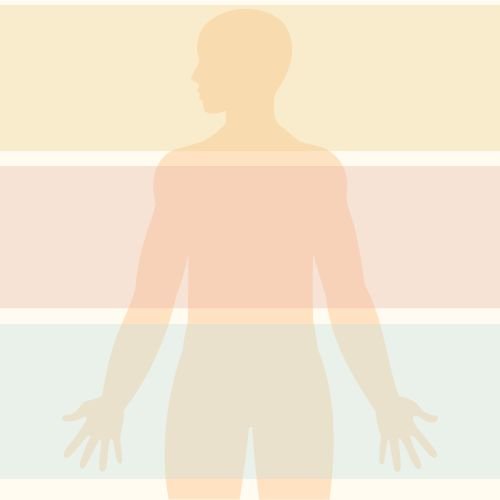What are the Centers of Intelligence According to the Enneagram?
Gut, Heart, and Head Types Explained
One of the Enneagram's most essential aspects is the Centers of Intelligence.
We all embody three centers: our gut or body center, our feeling or heart center, and our thinking or head center.
Just like how we embody characteristics of all the Enneagram types but are dominant in one, we tend to be dominant in one of the Centers of Intelligence. We have all three centers, but there is one center we (unconsciously) use more energy in while often ignoring the other two.
I'll start by explaining the body types and work up to the head center. This is also the path that is recommended when doing inner work because we start with the lowest center (the gut/belly) and work our way up to the highest center (the head).
NOTE: This is why you will see me often start with Type 8 when I talk about the types as a whole.
Body Types - 8, 9, 1
Types 8, 9, and 1 are dominant in the Body Center. They use sensations and the five senses to influence their behavior and actions.
Each of these types puts a lot of emphasis on order, responsibility, loyalty, and justice. They are all good at providing structure for how things will happen.
The common emotion of the Body Types is anger, though they each experience it differently. Eights express their anger, Nines fall asleep to their anger, and Ones repress their anger.
Common Characteristics of the Body Types
Sensations first
Using the five senses (taste, touch, smell, hear, see)
Find one efficient way to do things
Using their gut/gut instinct to make decisions
Learn by doing
Once they learn something, it becomes automatic (like riding a bike - your body just knows what to do)
Common Struggles of the Body Types
Can be rigid and judgmental
Can sometimes only think in terms of black and white; hard for them to see the abstract
Can live life as if there is only one right way
Have issues with anger
Heart Types - 2, 3, 4
Types 2, 3, and 4 are dominant in the Heart Center. They are all more centered in their emotions and how they are feeling. They like connecting with people and want to be liked, understood, and seen.
All of the Heart Types are concerned with their image, and they can shape-shift to get approval from others. They’re good at reading a room and getting a good sense of what others are feeling.
Twos are typically more in touch with other people's emotions than their own, Threes numb out to their emotions because it gets in the way of doing, and Fours feel all their emotions deeply.
The common emotion the Heart Types share is sadness or shame.
Common Characteristics of the Heart Types
Feelings first
Use their heart to read how other people are feeling
Good empathizers
Can quickly identify other peoples’ needs
Adaptable
Expressive
Sorts things/people/experiences into good or bad/pleasant or unpleasant
Common Struggles of the Heart Types
Have a consistent need for approval
Hard for them to value their inner self because they’re always looking for other people to validate them
Can be compulsive
Struggle with sadness or shame, especially when they don’t feel valued by others
Head Types - 5, 6, 7
Types 5, 6, and 7 are dominant in the head center. They are naturally good at planning and thinking things through. They approach things by looking at the big picture so they can know how to put the “pieces” in their proper place.
The common emotion of the Head Type is fear, but their focus of fear is on different things. Fives have a fear of feeling, Sixes have a fear of being, and Sevens fear suffering.
Common Characteristics of the Head Types
Thinking first
Process what is happening by thinking about it
Logical
Analytic thinkers
Constantly making scenarios of all possibilities
Big picture thinkers
Rational
Common Struggles of the Head Types
Overthinking
There can be a large gap of time between thinking and doing
Procrastinating
Think of emotions/feelings instead of feeling them
Think of sensations instead of experiencing them
One More Helpful Thing to Know About the Centers of Intelligence
It may be easier to determine someone’s type once you understand the Centers of Intelligence.
When asking a Body Type a question, they are usually quick to answer and don’t give it much thought.
When asking a Head Type, they will most often think about what they’re going to say before giving you an answer.
When asking a Heart Type a question, they often answer by first saying, “I feel….”
Start noticing how people answer your questions and what body language they use. See if you can pick up these subtle clues to know if their dominant center is in the body, heart, or head.

